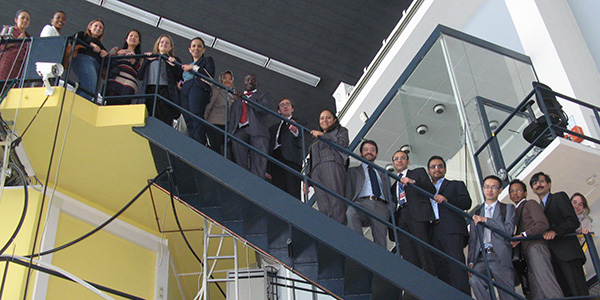
On September 24-28, 2012, the Vienna Center for Disarmament and Non-Proliferation (VCDNP) and the James Martin Center for Nonproliferation Studies (CNS) welcomed a new group of diplomats and other practitioners to the Vienna Center for their nuclear nonproliferation course series. Twenty-four course participants, selected on a competitive basis, represented twenty-three countries from Africa, Asia, Europe, and the Americas. The majority of participants were officials from diplomatic missions and international organizations based in Vienna; others came from foreign affairs ministries in their respective capitals, including some traveling from as far away as Madagascar, Lesotho, and Costa Rica.

The course program covered key issues related to the nuclear nonproliferation regime, including the history and current status of the nuclear Nonproliferation Treaty (NPT) as well as the NPT review process; an overview of the International Atomic Energy Agency (IAEA) and implementation of IAEA safeguards; multilateral export control regimes; nuclear-weapon-free zones; nuclear security and nuclear terrorism; nuclear arms control and disarmament, and other topics.
The lectures were delivered by CNS and VCDNP staff members, senior experts from international nonproliferation organizations, including the IAEA and the Preparatory Commission of the Comprehensive Test Ban Treaty Organization (CTBTO), and other well-known specialists in the field. The list of speakers included: William Potter, Leonard Spector, Gaukhar Mukhatzhanova, Elena Sokova, Nikolai Sokov,Ambassador Nabil Fahmy, Chen Kane from CNS and VCDNP; Robert Kelley(ret.), Tariq Rauf, Laura Rockwood, Jill Cooley and Carrie Mathews from the IAEA; Nikita Perfilyev from the CTBTO, Patricia Lewis from Chatham House, andMark Fitzpatrick from the International Institute for Strategic Studies.
The course included a tour of the operational research reactor at the Institute of Atomic and Subatomic Physics in Vienna, where the participants were able to look into the core of the reactor and even sit in the control room. For many participants, this was their first experience visiting a nuclear facility.


At the end of the course, participants completed an anonymous survey aimed at assessing the success of the event. The following are some of the assessments given by participants:
"This course is more than very useful to my professional career. I will highly advise my colleagues to attend the course."
"The information I gained during this course is hugely helpful. It gives me the power to move forward confidently."
"I really appreciate the informal setting of dealing with the issues and the mix of participants to discuss issues which we may not be done in discussions at the UN."
"I feel much more comfortable with the history and language than before, which amounts to crafting sharper arguments in favor of disarmament and against proliferation."

